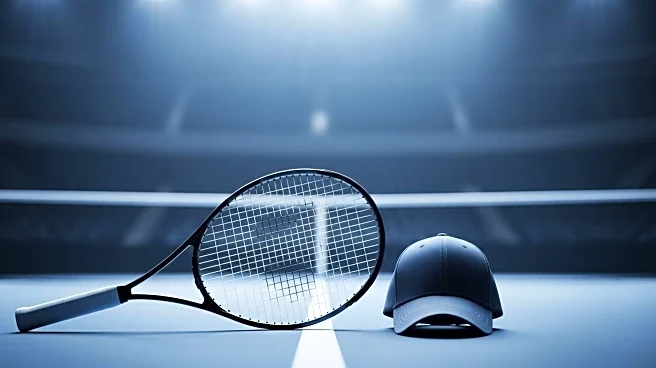What's Happening?
Polish tennis player Kamil Majchrzak recently met with a young fan following a viral incident at the US Open. A video captured during Majchrzak's match showed a man snatching a hat from a boy in the crowd, which Majchrzak had offered to the child. The video gained significant attention online, prompting Majchrzak to address the situation. He shared clips on his Instagram where he met with two boys, gifting them items including a cap similar to the one involved in the incident. Majchrzak, ranked 76th in the world, had a notable performance at the US Open, coming back from two sets down to defeat Russian ninth seed Karen Khachanov. However, he was forced to retire due to an injury during his third-round match against Switzerland's Leandro Riedi.
Why It's Important?
The incident highlights the importance of sportsmanship and fan interaction in professional sports. Majchrzak's response to the viral video demonstrates a positive approach to handling unexpected situations, reinforcing the value of athlete-fan relationships. This event also underscores the impact of social media in amplifying moments from sporting events, influencing public perception and athlete behavior. Majchrzak's actions may enhance his reputation among fans and the broader tennis community, showcasing his commitment to maintaining a positive image despite challenges.
What's Next?
Majchrzak's injury, a torn intercostal muscle, will require recovery time, potentially affecting his participation in upcoming tournaments. His interaction with fans may lead to increased support and visibility, influencing sponsorship opportunities and media coverage. The incident may also prompt discussions within the tennis community about fan conduct and security measures at events, aiming to prevent similar occurrences in the future.
Beyond the Headlines
The viral nature of the incident reflects broader societal trends in digital media consumption, where moments can quickly gain traction and influence public discourse. It also raises questions about the ethical responsibilities of spectators at sporting events and the role of athletes in addressing such issues. Majchrzak's proactive response may set a precedent for how athletes can positively engage with fans and manage public relations in the digital age.









